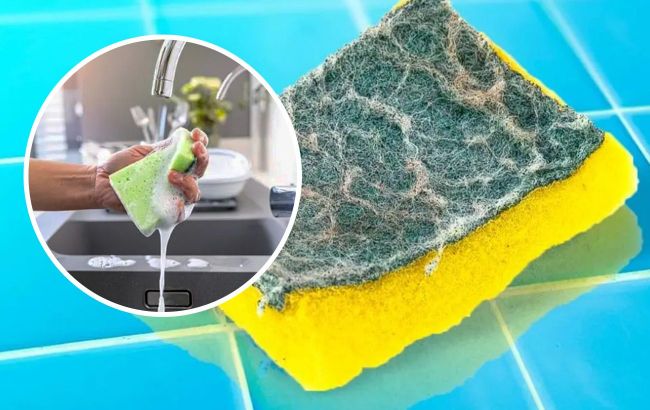How often should you really replace your dishwashing sponge
 How often should you change the kitchen sponge (Collage RBC-Ukraine)
How often should you change the kitchen sponge (Collage RBC-Ukraine)
The dishwashing sponge is a staple in every kitchen, used daily for cleaning dishes, plates, and tidying up the table. Due to constant contact with dirty surfaces and water, sponges become breeding grounds for bacteria. However, most people change them not according to guidelines but when they get excessively dirty.
How often should you replace a sponge to avoid exposure to microbes is explained by Sante.
How often should you change a kitchen sponge
If you can't remember the last time you changed your sponge, that's unfortunate. In reality, it should be replaced once a week. While this might seem like frequent replacement, it prevents bacterial growth and maintains cleanliness in your kitchen.
Why sponges accumulate microbes
Dishwashing sponges create an ideal environment for bacteria to multiply. Their porous structure and the presence of food residues create a surface that fosters bacterial growth.
Research conducted by the University of Furtwangen, Justus Liebig University in Giessen, and the Helmholtz Center in Munich found up to 362 different types of bacteria in kitchen sponges. Some bacterial density levels were compared to those found in fecal samples, emphasizing the need for regular sponge replacement.
The dangers of a dirty sponge
Approximately 50 percent of the bacterial species identified in sponges belong to the second risk group, meaning they are potentially pathogenic.
Vulnerable individuals with weakened immune systems, such as young children, the elderly, and those with chronic illnesses, are particularly at risk.
While diarrhea-causing agents and fecal bacteria are rarely found, strict hygiene is necessary to prevent any risk.
Can you clean kitchen sponges?
The desire to clean dishwashing sponges may seem appealing, but it's an ineffective solution. Cleaning sponges in the microwave or washing machine is not recommended because their structure is not heat-resistant.
Moreover, even if the number of bacteria temporarily decreases after cleaning, pathogenic microorganisms can quickly multiply again as they become more resistant to stress.
Previously, we wrote about how to correctly clean hairbrushes.

